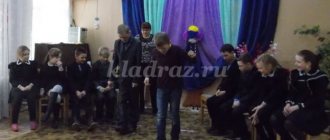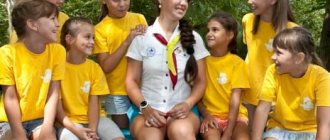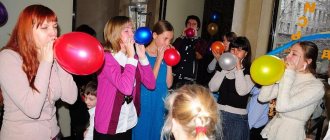Children's camps: sports, foreign language or vocals?
What is offered to little fidgets and thoughtful quiet people as an alternative to relaxing in the country with their beloved grandmother? Classics of the genre - health improvement, sports, learning foreign languages, robotics, development of personal and leadership qualities, creative and even culinary trends. All this can be found in themed summer camps for preschoolers.
And it is not at all necessary to send your beloved child far and alone for a long time. You can consider options for day camps: bring your child only for the day, and take him home in the evening. Such camps are located on the basis of some kindergartens or children's centers, creativity centers, sports sections and even academies at professional sports clubs. In addition, you can think about options for joint vacations - many children's camps offer family sessions or weekends (by the way, also themed), which include a cultural program in the form of excursions and visits to interesting places.
With this variety of offers, it is really difficult for parents to decide - what kind of rest does their child need? In this matter, the most important thing is to understand what the child himself wants, what he strives for, because already at a young age certain inclinations and abilities begin to appear. In this case, it is desirable that the child’s activities change from “winter” to “summer”, the activity takes place in the fresh air, and the circle of friends expands.
Language camps. It seems that the debate about whether to learn or not to learn foreign languages is already over. The only question is which ones and to what extent to study. Language camps or thematic sessions are organized by many educational institutions and travel companies both in Russia and abroad.
Abroad, naturally, the child will be more immersed in the language environment. However, inviting native speakers to local shifts has also become the norm. Learning a foreign language in the summer occurs, as a rule, in the format of immersion in a language environment, when all summer activities (hiking, outdoor games, picnics) are carried out using a foreign language. It is much easier for a child to understand a foreign language in familiar and favorite activities.
Elena Mingova, founder of the Cosmo Kids network of bilingual kindergartens, advises when choosing a language camp to pay attention to the following nuances:
“Firstly, a language camp, even for the little ones, is a complete immersion in the language environment. Having crossed the “threshold” of the camp, children begin to communicate with the teacher in a foreign language. And even if the child has not studied the language before, as our experience shows, the adaptation process in children occurs very quickly.
The second important point: classes at the camp should be as close as possible to the child’s natural life. Children play, experiment, stage plays, make collages, dance and sing - all in a foreign language. Thus, while having fun and interesting time, the child begins to show interest in learning the language. Children who attend such camps often ask their parents at home: “Mom, dad, how will it be in English?”
Well, and thirdly, it is ideal if the language camp teacher is a native speaker. Then your time will be as effective as possible.”
Sports camps. Young athletes who are accustomed to serious physical activity most often rest (and train) in them. If an unprepared child is sent to such a camp, the classes may be too intense for him, which will negatively affect his health. But there is an alternative - health camps, which give children the opportunity to try themselves in different sports and master many outdoor sports games. They often take place at sports centers with the appropriate infrastructure, and the child can be taught, for example, roller skating or rock climbing.
Here the loads are not so intense and are rather aimed at strengthening the child’s health. This includes exercise, hardening, hiking, and organized games. Children, even those who do not have chronic diseases, still accumulate fatigue over the course of a year, and all kinds of acute respiratory viral infections suffered during the fall-winter-spring also do not add advantages to their health.
Creative camps. If you have a growing creative nature, the best option for such a child would be the appropriate type of activity in the camp as the main one. There are, for example, children’s camps where they teach vocals, choreography, dancing, and music over the summer. Plus, there are acting classes for kids and even “Magic Shifts,” when a child can graduate from Hogwarts school during the holidays. Themed sessions are suitable for researchers, where they will learn to explore the world and develop a love of travel.
All children's camps, no matter what topic they work on, also have a related program for children. These can be educational excursions (if, for example, the camp is located near historical and memorable places), intellectual games (why not arrange KVN or “What? Where? When?” with preschool children?), field trips to museums and galleries, film shows, exciting quests, hikes, etc. In addition, traditionally programs provide for children to attend various hobby groups.
Rest is enough!
Many parents try to literally “cram” as much as possible for their children into the three summer months - they educate, improve their health, and develop. We need to try to find the optimal balance. There is no need to completely switch the child’s brain from study to relaxation in the summer and vice versa in early autumn. During the summer, even on vacation, it is worth continuing some activities that have already become familiar to the child. Also, when drawing up a summer vacation plan, it is necessary to take into account the interests of all family members, and not just the child.
What to do with a child in the city
With the onset of summer, parents can exhale - there is no need to take their children to kindergarten, classes, clubs, etc. But the question arises: how to ensure proper children's recreation in the city?
For the first week or two, the child will enjoy freedom: no need to get up early, get dressed, or go somewhere. But over time, such a free schedule becomes boring for the baby himself - he can become more demanding and even capricious. For one simple reason - he will miss social impressions and communication with peers. According to statistics, about 80% of children are extroverts, and they need communication like air. Therefore, you should absolutely not neglect games with other children. This could be walks in the yard, in the park, or joint entertainment (going to the cinema, etc.).
Speaking of walks: more and more often, modern children see the world around them only from car windows, that is, they grow up in a somewhat artificial environment. Psychologists say that many of them do not develop life skills and abilities. Children, according to experts, become “laboratory children.” This is the term that appeared quite recently.
Psychologists recommend filling the summer period, when both parents and children have much more free time, with all sorts of adventures. For what, you ask? To awaken in a child the curiosity characteristic of his age. And a curious baby will absorb knowledge like a sponge. Thus, the ability to navigate the terrain will allow him to better master geometry in the future, and frequent walks in nature will allow him to better understand biology.
Children's holidays during the holidays. To grandma's dacha?
When sending a child to his grandmother's dacha, you need to weigh the pros and cons.
Fresh air, nature, and hand-grown fruits and vegetables are strongly in favor of such a vacation. In addition, grandmothers, due to their age, are more loyal to their grandchildren and their antics. Taking care of grandchildren also benefits the oldest generation. This way they fully feel that they are needed by their children. An important point is the opportunity for the parents themselves to relax, because no matter how desired and loved the child is, he creates a special rhythm of life. In his absence, parents will be able to do something long planned. And don’t forget that a vacation at the dacha is another opportunity for your child to make new friends and communicate with peers.
From the category “against” such trips, the first place, of course, is your relationship with the host party. If they don't get along, the child will feel uncomfortable there. In addition, in another house there are slightly different rules of upbringing, and they were not established by the parents. The child may return home spoiled or uncontrollable (especially if the grandmother does not limit him in watching TV or playing on the tablet). Don’t discount your concern for your child, as well as the fact that you and, of course, your baby will miss each other.
Only the parents themselves can weigh all the pros and cons of such trips and make the right decision. And if you nevertheless decide to send your child to grandma, then you should discuss with her in advance all the “dos and don’ts” regarding your baby, talk about how his day will be structured, and provide him with everything he needs (from a soccer ball to coloring books and interesting tutorials).







